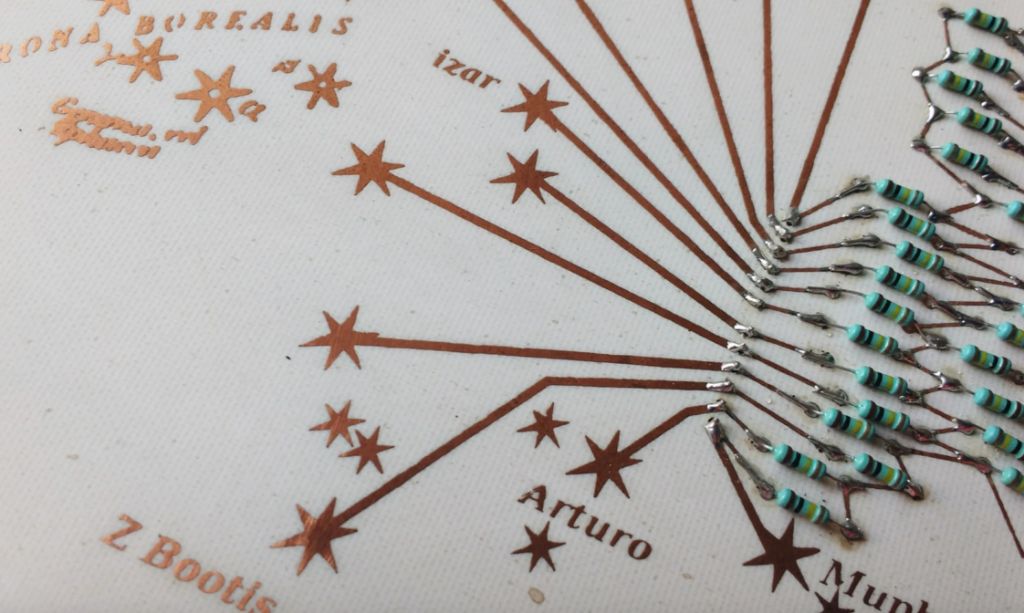Text by CLOT Magazine

Art Laboratory Berlin presents Hackers, Creators, Thinkers, a new interdisciplinary project that explores the revival of social possibilities after two years of COVID lockdown. Elaborated at the intersection of art, design, biology, and anthropology, it considers the Doing It With Others (DIWO) to be a way of rebuilding and re-energising social relationships. The focus is on open knowledge and open culture as the basis for creativity and thinking. Bringing together artists from Berlin, Latin America, and Southeast Asia, the project proposes art-making as a tool for social empowerment, learning and collaboration. An extensive program includes a group exhibition, an international conference, workshops, and performances.
The exhibition will run from May 20th and features six works. Each of them is not only meticulous research in various fields — from agriculture to HCI, but also the embodiment of different artistic contributions and approaches. Entangled Beauty. A Perfect Marriage by artist Irene Agrivina combines traditional farming practices, art, and biology.
She also explores the phenomenon of symbiosis through the interaction of aquatic plants and cyanobacteria. Interspecifics installation Codex Virtualis is an aesthetic journey through an ecosystem of neural networks and algorithms. The artists have created an AI-research framework for image synthesis and the evolution of an open-ended taxonomic collection of speculative life forms.
The piece Virophilia by artist and designer Pei-Ying Lin features both an artist’s book and installation. It also exists as a “Cookbook for the 22nd Century” using foods whose genome has been altered by viruses. Cammack Lindsey presents a musical installation, Holobiont: Relics from the Revolution, an imaginary set inside a factory, extracting toxins from cyanobacteria for transformation into profitable products. During her performance, Cammack will explore the symbiosis between the intersectional working-class and toxic cyanobacteria.
Constanza Piña Pardo recreates in Khipu Chilean an Inca khipu, a prehispanic knotting method for recording information, made of cotton or camelid fibre strings that store data. Last but not least the project TERRESTRIAL-CELESTIAL by the South Korean collective Rice Brewing Sisters Club (RBSC) is an artistic research of social fermenting. They collaborated with local urban gardeners and explored human and non-human relationships, decolonial histories and local belief systems through the cross-cultural resonance of collective conversations and actions.
As part of the exhibition, Art Laboratory Berlin, in cooperation with the Weizenbaum Institute (UdK Berlin) and the Einstein Digital Future Center (TU Berlin), is also organising an international conference. It will take place on May 27th and 28th and include presentations by exhibited artists and guest speakers from design, biology, sociology, art and curatorial fields.
The conference will provide complex insights into various artistic approaches to agriculture, farming, and social fermentation. The panels will focus on viral discourse related to performance and food and the symbiosis phenomena, including cyanobacteria and biopolitics, and different approaches to hacking and speakers will also discuss the cultural-political, post-colonial and transonic phenomena related to quipu, human experience, AI, sound art and noise.
The second day, the conference will continue in a “Walk & Talk” format. The participants will be able to delve deeper into the discussion and exchange opinions in small groups during guided Walking Conversations with curators/organisers and guest speakers like Oron Catts. In addition, there will be three walking panels — Hacking Food Narratives, Symbiotic Elements‘ and Sonic Cyborgs.
As part of the conference, the Indonesian women’s team XXlab, including Irene Agrivina, will also hold the SOYA C(O)U(L)TURE workshop. The Soya C(o)u(l)ture project aims to use a simple kitchen as a laboratory to transform wastewater into usable biomaterials. Irene will talk about the process, show samples and then help participants make eco-prints using easily available materials such as flowers and leaves.
Registrations can be found here.






